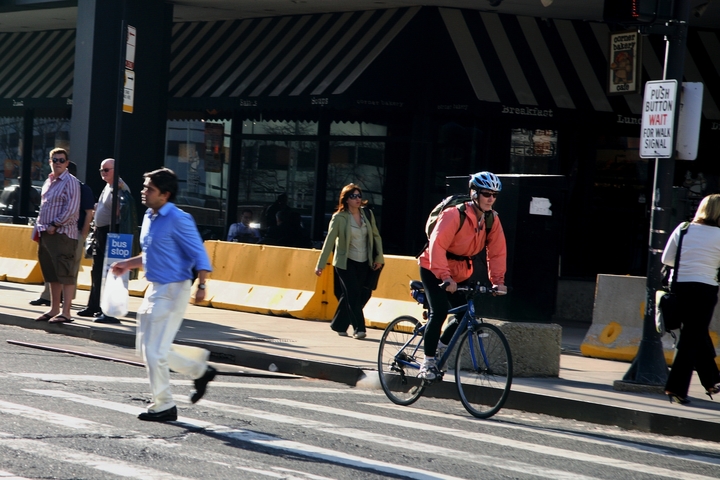Did You Know?
No fatality on our streets is acceptable

Last week in Chicago’s Avondale neighborhood, 25 year-old Virginia Murray was struck and killed by a truck while riding a Divvy bike. The crash is believed to be the first bike share fatality in the country.
This tragedy is the latest in a string of serious injuries and fatalities among people biking that have been reported widely in the media. We’ve heard from a lot of Active Trans members and supporters who are understandably concerned by these reports and are eager to take action.
It’s too early to say if these incidents are part of a larger trend or if the press is just covering them more frequently. (Unfortunately, official crash data from the Illinois Department of Transportation takes about two years to compile and make accessible.)
But we don’t have to wait for the data to know each and every one of these crashes is preventable and no fatality on our streets is acceptable.
Crashes continue to impact thousands of people in the Chicago area each year, including dozens of fatalities. In Chicago and its suburbs, about 15 people are killed and 3,000 injured every year while riding a bike.
Reflecting on these numbers and reading the recent media coverage can be deeply unsettling, especially if you walk or bike frequently or have experienced a crash personally.
But there has been some progress in recent years in improving safety for people walking and biking. For example, the number of people biking in Chicago has roughly tripled since 2000, but the number of crashes has remained relatively stable. That means the crash rate is likely dropping.
And despite last week’s tragedy, the Divvy bike share system has enjoyed a stellar safety record, logging more than 8 million rides with only a handful of reported injuries and one fatality.
This record aligns with the experience of other bike share systems around the country.
Instead of discouraging us, these recent events should impel all of us to work ever harder — both directly and indirectly — to address the unacceptable number of bicycle and pedestrian crashes in the region.
Here are some of the ways we’re working to make this happen:
- Vision Zero: We’ve recently been campaigning in the City of Chicago and throughout the region to promote Vision Zero strategies to eliminate traffic fatalities. We expect the City of Chicago to produce a preliminary Vision Zero plan this fall and are working to identify opportunities to advance the Vision Zero framework in suburban communities.
- Safe Routes to School: For the last two years, we’ve been leading a statewide campaign to improve the Safe Routes to School program, which funds infrastructure improvements and educational programming near schools. One of the primary goals of this campaign is to reduce bicycle and pedestrian crashes near schools. Our own analysis has shown that 5 children a day are struck by cars while walking or biking near a school.
- Crash support and courtroom advocacy: For individuals who have experienced a crash, we offer a support hotline that helps connect them to information and legal resources. Likewise, we have worked to organize court room advocates in Cook County who have engaged in cases involving fatal crashes.
- Advocating for better infrastructure: Through our advocacy and planning work, Active Trans has contributed to the development of dozens of community plans geared toward improving conditions for biking and walking. Likewise, our Bikeways for All campaign is mobilizing our members and supporters throughout the region to push for safe, low-stress bike infrastructure like trails, protected bike lanes and neighborhood greenways. Over the long term, we know re-engineering our streets by creating Complete Streets for everyone is the best bet for eliminating traffic fatalities.
Make a Donation
Your tax-deductible donation supports the important work that Active Trans does throughout the region
